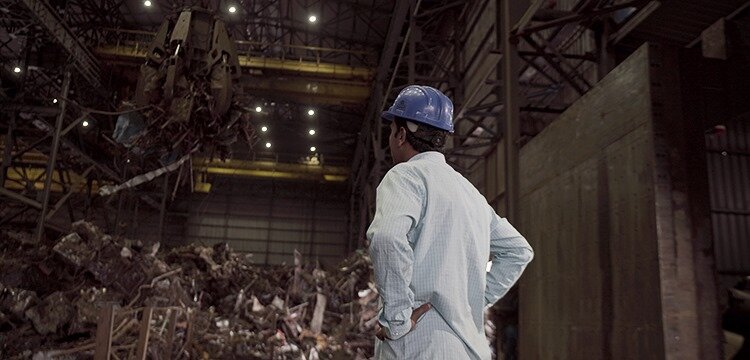Revolutionizing the Steel Industry: The Economic Triumph of Scrap Steel Recycling
India finds itself at the forefront of sustainable innovation within the steel industry, where the circular economy is taking center stage in cycling used steel back into production. The ongoing economic significance of secondary steel, manufactured by recycling scrap steel, remains pivotal in nurturing an industry that is more sustainable, resilient, and economically efficient.
This impact is brought out in the following ways:
- Efficient Resource Utilization and Raw Material Savings: In the conventional linear economy, steel production heavily depends on virgin raw materials, leading to resource depletion and environmental harm. However, by focusing on secondary steel, the industry significantly reduces this dependency. As per the Environmental Protection Agency (EPA), the repurposing of scrap steel as a primary input not only conserves natural resources but also trims the energy-intensive process of extracting and refining raw materials. This resource-efficient approach translates into substantial cost savings. Producing quality steel from high-quality ferrous scrap also minimizes the dependency on imports, thus bolstering the economic viability of the industry.
- Economical Production and Market Competitiveness: Scrap recycling to create steel is a game-changer in terms of production costs. The use of recycled steel requires less energy compared to the traditional method of producing steel from iron ore. This energy efficiency not only contributes to a greener footprint but also directly impacts the bottom line. With reduced energy consumption and lower raw material costs, the industry gains a competitive edge. Recycling one ton of steel conserves 2500 pounds of iron ore, 1400 pounds of coal, and 120 pounds of limestone.This cost-effectiveness allows for the provision of high-quality steel products at competitive prices, attracting environmentally conscious consumers and expanding market share.
- Job Creation and Local Economic Development: Secondary steel production operations significantly contribute to job creation. The process of collecting, sorting, and recycling scrap steel demands a skilled workforce, from technicians and engineers to logistics and administrative professionals. Supporting local employment turns the industry into a driving force for economic development in the communities it operates in. The ripple effect of job creation extends beyond the facility, fostering a robust local economy.
- Waste Reduction and Environmental Responsibility: One of the most compelling aspects of scrap steel recycling is its positive impact on the environment.
The industry assumes a crucial role in waste reduction by championing the reuse of ferrous scrap. The reuse of this scrap decongests the Indian cities from End-of-Life Vehicles (ELVs) and diverts scrap away from landfills. This commitment to environmental stewardship aligns with global sustainability goals and resonates with consumers who prioritize eco-friendly products. As environmental awareness continues to grow, the industry stands to benefit economically from a market that values sustainability.
- Regulatory Compliance and Risk Mitigation: The steel industry is subject to an evolving regulatory landscape with increasing scrutiny of environmental practices. Embracing secondary steel positions the industry as a proactive leader in sustainability. This ensures compliance with existing regulations and mitigates the risk of potential liabilities from future regulatory changes that may penalize carbon-intensive and resource-depleting practices. A forward-looking, sustainable approach to steel production shields the industry from potential pitfalls and enhances its long-term economic resilience.
In conclusion, the economic impact of secondary steel production is multi-faceted, touching on resource efficiency, cost-effective production, job creation, waste reduction, and environmental stewardship. The vision of this sector resonates with the Steel Ministry’s endeavor to develop a globally competitive steel industry, forging a path toward a more sustainable and economically vibrant future, where the economic benefits of secondary steel propel the industry into a new era of success.

